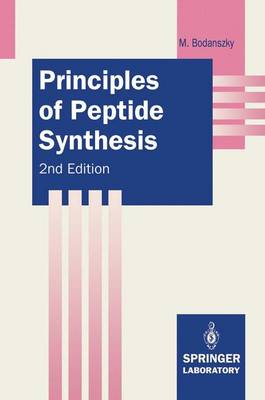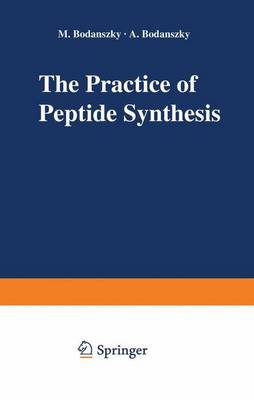Springer Lab Manuals
2 total works
Principles of Peptide Synthesis is a very successful book by one of the pioneers of contemporary bioorganic synthesis. Its first edition proved a valuable source that is kept close to the work bench for frequent consulting. Any researcher planning the formation of the peptide bond, be it for the synthesis of a peptide chain or a cyclic peptide, benefits from the author's experience. The concise and critical treatment of the steps involved: protection, activation and bond formation require careful planning to avoid racemization and undesired side reactions. The second edition has been completely revised and updated. New procedures that have been developed since the first edition was published and that did not fit into the original are added in a separate chapter. This separation of old and new make it possible to assess new ideas and discern novel trends.
The Practice of Peptide Synthesis
by Miklos Bodanszky and Agnes Bodanszky
Published 31 December 1984
During the years 1980-81, as guests of the Deutsches Wollforschungsinstitut in Aachen, Germany, we were working on a small book entitled, "Principles of Peptide Synthesis". In the library of the Institute we noted that the volumes of Houben-Weyl's Handbuch der Organischen Chemie dealing with peptide synthesis were so much in use that they were ready to fall apart because the researchers of the Institute consulted them with amazing regularity. They were looking for references, but even more for experimental details which could be adapted to the particular problem they happened to face. In planning a new synthetic endeavor they tried to lean on the experience of others in analogous situations. This suggested to us that a smaller and hence more tractable book may be needed, a volume which can be kept on or near the bench to make examples of fundamental methods readily available in the laboratory. Such a collection could save numerous short trips to the library, a point particularly important where a library well equipped with the sources of the literature of peptide synthesis is not near at hand. Also, we thought that the envisaged book may be welcome by those who are more versed in English than in German. To the best of our knowledge no similar publication is available.

